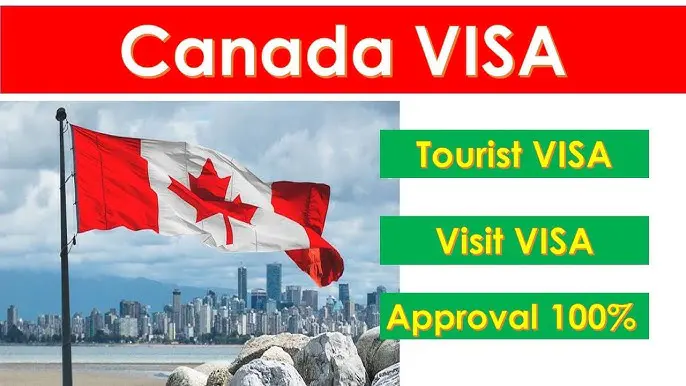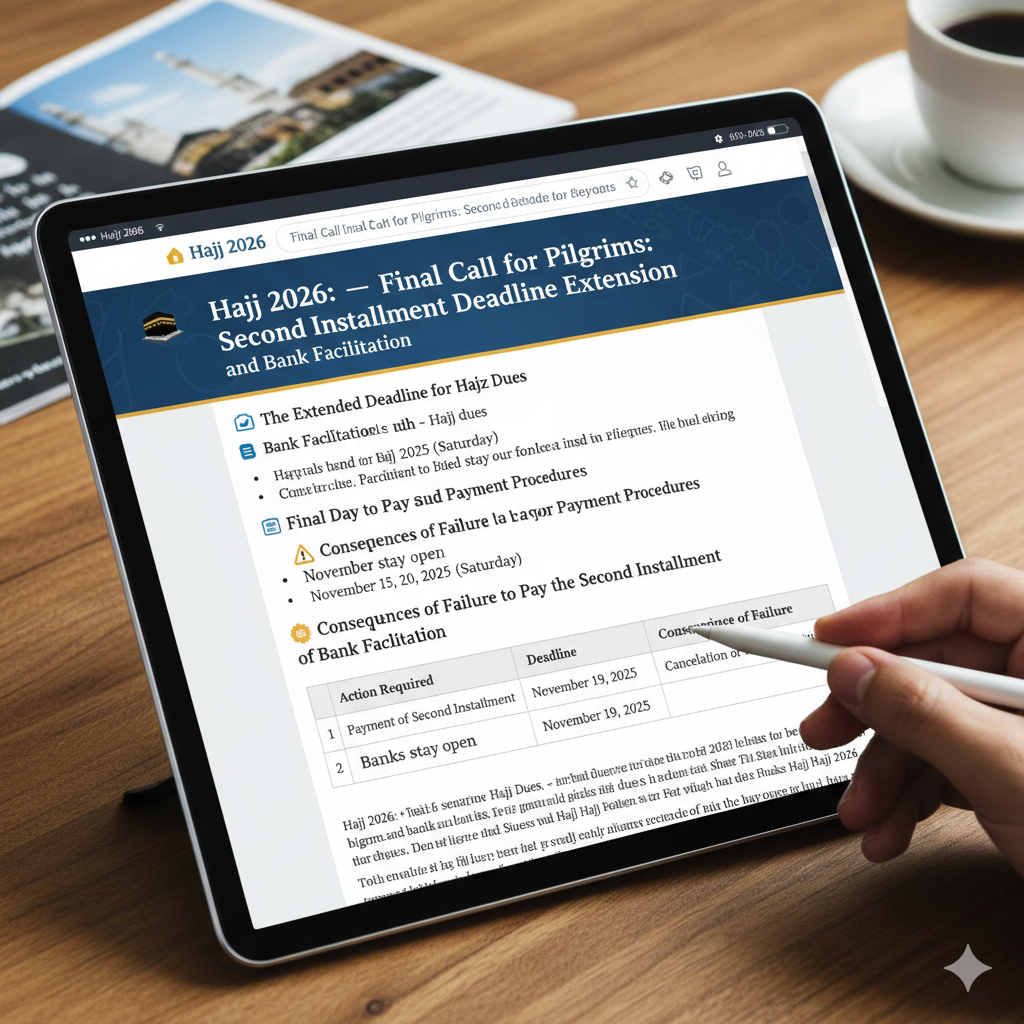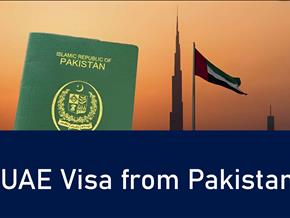
As of May 2025, the Canada visitor visa, also known as a Temporary Resident Visa (TRV), remains a crucial document for many individuals seeking to enter Canada for various short-term purposes. Understanding the intricacies of the visitor visa process, its requirements, and the permissible activities is essential for a smooth and successful application. This comprehensive article delves into the key aspects of the Canada visitor visa, providing detailed information for prospective visitors planning their trip in 2025 and beyond.
The Canada Visitor Visa
The Canada visitor visa is an official travel document affixed to a passport, indicating that the holder has met the necessary requirements to enter Canada for a temporary stay. The primary purpose of the visitor visa is to allow foreign nationals to engage in non-lucrative activities within Canada, such as tourism, business, or visiting family and friends. Immigration, Refugees and Citizenship Canada (IRCC) is the government body responsible for processing visitor visa applications and determining eligibility.
A visitor visa can be issued as either a single-entry visa or a multiple-entry visa. A single-entry visa permits the holder to enter Canada only once, for a specified period. Once the visitor leaves Canada, the visa becomes invalid, even if the permitted duration of stay has not been fully utilized. Conversely, a multiple-entry visa allows the holder to enter and leave Canada multiple times during the validity of the visa, with each stay typically limited to a maximum of six months. The validity of a visitor visa, whether single or multiple entry, can be up to a maximum of 10 years or until the expiry date of the applicant's passport or biometrics, whichever comes first.
Purposes for a Canada Visitor Visa
While the initial prompt suggested three specific purposes after May 2025, the reality is that the fundamental reasons for obtaining a Canada visitor visa remain consistent. The visitor visa caters to a range of short-term travel needs, primarily categorized as:
Tourism in Canada
Tourism is a significant reason for individuals to apply for a Canada visitor visa. Canada boasts diverse landscapes, vibrant cities, and rich cultural experiences, attracting tourists from around the globe. A visitor visa for tourism allows individuals to explore Canada's national parks, visit popular attractions, attend cultural events, and immerse themselves in the Canadian way of life. Whether it's witnessing the majestic Niagara Falls, skiing in the Rocky Mountains, or exploring the historic streets of Quebec City, a visitor visa facilitates these tourism-related activities. Applicants for a visitor visa for tourism need to demonstrate their genuine intention to visit Canada for leisure and that they will depart Canada at the end of their authorized stay. Providing a detailed travel itinerary, including flight bookings and accommodation details, can strengthen their application for a visitor visa for tourism.
Business Visits to Canada
The Canada visitor visa also serves the purpose of facilitating business-related travel. Individuals who need to come to Canada for short-term business activities, such as attending meetings, conferences, negotiating contracts, or exploring business opportunities, require a business visitor visa. It's crucial to note that a business visitor visa does not permit the holder to engage in work for a Canadian employer or to be employed in the Canadian labor market. The activities under a business visitor visa are typically limited to international business engagements that do not directly enter the Canadian workforce. Applicants for a business visitor visa should provide documentation such as letters of invitation from Canadian businesses, details of their business itinerary, and proof of their professional affiliations in their home country to demonstrate the legitimate business purpose of their visit.
Visiting Family and Friends in Canada
A significant portion of Canada visitor visa applications are to visit family and friends who are Canadian citizens or permanent residents. The visitor visa allows individuals to reunite with their loved ones in Canada for temporary visits. This category is particularly important for maintaining family connections across borders. Applicants for a visitor visa to visit family and friends may need to provide a letter of invitation from their host in Canada, along with proof of the host's immigration status in Canada (e.g., citizenship card, permanent resident card). Demonstrating the genuine relationship between the applicant and the host is crucial for a successful visitor visa application under this category. The letter of invitation should include details about the host, the applicant, the purpose and duration of the visit, and the living arrangements during the stay.
Eligibility Requirements for a Canada Visitor Visa
To be eligible for a Canada visitor visa, applicants must meet several key requirements. These requirements are designed to ensure that visitors to Canada are genuine, will not overstay their authorized period, and pose no risk to Canadian society. The primary eligibility criteria include:
- Valid Passport or Travel Document: Applicants must possess a valid passport or another acceptable travel document that is valid for the duration of their intended stay in Canada. It is generally recommended that the passport have at least six months of validity beyond the intended date of departure from Canada.
- Good Health: Applicants may be required to undergo a medical examination by a panel physician designated by IRCC to ensure they do not have any health conditions that could pose a public health risk.
- No Criminal Record or Immigration-Related Convictions: Applicants must not have a criminal record or any history of immigration-related offenses. A police clearance certificate from their country of residence may be required.
- Proof of Sufficient Funds: Applicants must demonstrate that they have sufficient financial resources to support their stay in Canada and to return to their home country. The amount of funds required will vary depending on the duration and purpose of the visit. Bank statements, proof of employment, and letters of financial support (if applicable) are common documents used to demonstrate financial stability.
- Strong Ties to Home Country: Applicants must convince the visa officer that they have strong ties to their home country and will leave Canada at the end of their authorized stay. These ties can include employment, property ownership, family responsibilities, and other commitments that indicate an incentive to return.
- Genuine Intention of Visit: Applicants must clearly state the purpose of their visit to Canada, whether it is for tourism, business, or visiting family, and provide supporting documentation to substantiate their claims.
- Admissibility to Canada: Applicants must be admissible to Canada under the Immigration and Refugee Protection Act (IRPA). Inadmissibility can arise from various factors, including security concerns, human rights violations, and misrepresentation.
The Canada Visitor Visa Application Process in 2025
The process of applying for a Canada visitor visa typically involves several steps, which are primarily conducted online through the IRCC Portal. While some circumstances might require in-person submissions at a Visa Application Centre (VAC), the online application is the most common method. The general steps include:
- Determine Eligibility: Before applying, it's crucial to determine if a visitor visa is required based on the applicant's nationality and travel documents. Some countries are visa-exempt, while others require an Electronic Travel Authorization (eTA) for air travel.
- Gather Required Documents: Applicants need to collect all the necessary supporting documents, which may include a valid passport, photographs, proof of funds, travel itinerary, letter of invitation (if applicable), and evidence of ties to their home country. The specific documents required can vary based on the purpose of the visit and the applicant's circumstances.
- Complete the Application Form: The visitor visa application form (IMM 5257) must be completed accurately and in full. This form can be accessed and filled out online through the IRCC Portal.
- Create an IRCC Portal Account: To apply online, applicants need to create an account on the IRCC Portal. This portal allows for the submission of the application and supporting documents, as well as the payment of fees and tracking of the application status.
- Upload Supporting Documents: Electronic copies of all required documents must be uploaded through the IRCC Portal. It's essential to ensure that the scanned documents are clear and legible.
- Pay the Visa Application Fee: The current application fee for a Canada visitor visa is CAD 100 per person. This fee is typically paid online using a valid credit or debit card through the IRCC Portal.
- Submit Biometric Data (if required): Depending on the applicant's nationality, biometric information (fingerprints and photograph) may be required. If so, the applicant will receive instructions on how and where to provide their biometrics, usually at a VAC. A separate biometric fee of CAD 85 is applicable.
- Await a Decision: Once the application and biometrics (if required) are submitted, IRCC will process the application. Processing times can vary depending on the volume of applications and the complexity of individual cases. Applicants can track the status of their application through their IRCC Portal account.
- Passport Submission (if approved): If the visitor visa application is approved, IRCC will request the applicant's original passport to affix the visa. Instructions on how to submit the passport will be provided.
- Travel to Canada: Upon receiving the passport with the visitor visa, the applicant can make travel arrangements to Canada. It's important to carry all relevant documents during travel, as border services officers at the port of entry will conduct checks to ensure admissibility.
Extending a Canada Visitor Visa in 2025
Visitors who are already in Canada on a visitor visa and wish to extend their stay must apply for a visitor record before their current status expires. A visitor record is a document that grants an extension of the authorized stay in Canada. It is not a new visitor visa but rather a confirmation of continued temporary resident status.
To apply for a visitor record to extend a visitor visa, individuals must:
- Apply at least 30 days before their current status expires.
- Be physically present in Canada.
- Have a valid passport.
- Demonstrate sufficient funds to support their extended stay.
- Have a genuine reason for the extension.
- Convince IRCC that they will leave Canada at the end of their authorized extended stay.
The application for a visitor record is typically done online through the IRCC Portal, and a processing fee of CAD 100 applies. Applicants need to provide supporting documents, such as proof of funds, a detailed explanation for the extension request, and evidence of their intention to leave Canada. The processing time for a visitor record can vary, and it's crucial to apply well in advance of the expiry of the current status to maintain legal status in Canada while the application is being processed.
Potential Challenges and Tips for a Successful Application
Applying for a Canada visitor visa can sometimes be challenging. Some common reasons for visitor visa refusal include insufficient proof of funds, weak ties to the home country, and concerns about the applicant's genuine intention to leave Canada at the end of their authorized stay.
To increase the chances of a successful visitor visa application:
- Provide Complete and Accurate Information: Ensure that all information provided in the application form and supporting documents is accurate and consistent. Any discrepancies or omissions can lead to delays or refusal.
- Demonstrate Strong Ties to Home Country: Provide comprehensive evidence of your ties to your home country, such as employment contracts, property deeds, family documents, and community involvement.
- Show Sufficient Funds: Submit clear and up-to-date bank statements and other financial documents that demonstrate your ability to support yourself during your stay and return home.
- Clearly State the Purpose of Visit: Provide a detailed explanation of the reason for your visit, along with supporting documents such as travel itineraries, conference invitations, or letters of invitation from family.
- Apply Well in Advance: Processing times for visitor visas can vary, so it's advisable to apply well in advance of your intended travel dates to avoid any last-minute complications.
- Seek Professional Guidance if Needed: If you have a complex immigration history or are unsure about the application process, consider seeking assistance from an authorized immigration consultant or lawyer.
Conclusion
The Canada visitor visa remains a vital pathway for individuals seeking to experience Canada for tourism, business, or to connect with family and friends in 2025. Understanding the different purposes of the visitor visa, the eligibility requirements, and the application process is crucial for a successful outcome. By preparing thoroughly, providing accurate information, and demonstrating a genuine intention to comply with Canadian immigration laws, prospective visitors can navigate the visitor visa application process effectively and look forward to their temporary stay in Canada.
;More Travel News
-
 02-Feb-2021Visa Categories UAE
02-Feb-2021Visa Categories UAE -
 09-Sep-2025NUSUK System Update: Important Changes for Pakistani Pilgrims Planning Umrah
09-Sep-2025NUSUK System Update: Important Changes for Pakistani Pilgrims Planning Umrah -
 25-Jan-2026Today’s Guide to Choosing the Best Umrah Package
25-Jan-2026Today’s Guide to Choosing the Best Umrah Package -
 18-Nov-2025Hajj 2026 Second Installment Deadline Extension and Bank Facilitation
18-Nov-2025Hajj 2026 Second Installment Deadline Extension and Bank Facilitation -
 06-Jul-2021What Are the Hottest Travel Deals in Pakistan for the Summer Season
06-Jul-2021What Are the Hottest Travel Deals in Pakistan for the Summer Season -
 04-Jun-2020Despite Increasing Coronavirus Cases, PM Wants Tourism
04-Jun-2020Despite Increasing Coronavirus Cases, PM Wants Tourism -
 03-May-2024UAE has banned new tourist visas for citizens of Pakistan, Ethiopia and Bangladesh.
03-May-2024UAE has banned new tourist visas for citizens of Pakistan, Ethiopia and Bangladesh. -
 13-May-2025UAE Blue Visa: Your Sustainable Future Starts Here
13-May-2025UAE Blue Visa: Your Sustainable Future Starts Here -
 09-Aug-2025Sky Wars: Why India’s Airlines Are Paying a Heavier Price Than Pakistan
09-Aug-2025Sky Wars: Why India’s Airlines Are Paying a Heavier Price Than Pakistan -
 17-Jul-2019How travel agent can save your pains and money?
17-Jul-2019How travel agent can save your pains and money? -
 11-Nov-2025Saudi Government Health Instructions for Hajj 2026
11-Nov-2025Saudi Government Health Instructions for Hajj 2026 -
 16-Jun-2022Business class air ticket Rs.50,000 Tax Approved
16-Jun-2022Business class air ticket Rs.50,000 Tax Approved
